#reclaiming history
Explore tagged Tumblr posts
Text
Why This Aesthetic? A Personal Reflection
For those who are curious: no, I don’t believe in state-run socialism.
I’m fully aware of the deep flaws of the Soviet era. Personally, I stand by democratic socialism—somewhere between libertarian socialist and a soft spot for PROUT (Progressive Utilization Theory). I also stand by Participatory Economics. Back in my teenage years, I identified as an anarcha-queer. I no longer use that label, but many of its core radical queer values still live in me today.
So why the red and black? The fists, the chessboard, the revolutionary geometry?
It’s about heritage.
I come from a third—or maybe even fourth—generation of socialists. My late Salvadoran grandfather was involved in worker rights organizing during the era of the Salvadoran civil war. Growing up, a few relatives would make passing comments that hinted—just barely—that he may have spoken Russian. Nothing was ever confirmed, but I suspect he knew how to navigate Soviet-aligned political spaces. He moved in circles that carried weight.
This aesthetic is my way of reclaiming that lineage.
It’s not about nostalgia for authoritarian regimes. It’s about honoring the currents of struggle and survival that shaped my family—and shaping them into something new. Something principled, queer, and unapologetically mine.
#socialism#democratic socialism#queer#radical queer#queer politics#reclaiming power#reclaiming history
3 notes
·
View notes
Text
youtube
2 notes
·
View notes
Text
If you don't know what this is about, the queer creator Avelo (aka Dreamsounds) made an awesome video on the topic a while ago, I'd highly recommend checking it out!
https://youtu.be/Z4GtOxsVPN4?si=GCSaddBojFoqk2ft

16K notes
·
View notes
Text
I haven’t began to finish my thoughts from my previous post because there is something else on my mind.
I’ve been thinking about the process of reclaiming the essence of life and the mask.
Hear me out. People typically use mask to hide themselves, but what if we were given a mask that protects us; could you imagine what would or could happen if your protection was stripped away from you? Leaving you vulnerable and open to judgement ? What if that removal was the thing that made your journey to becoming more challenging because you couldn’t integrate in peace. Imagine the internal conflict and confusion of wearing nothing because what you’ve been cloaked with is not yours. Therefore, you are naked or you appear to be, but you are covered in a thin layer of the masks of others. Many of them reading; guilt, shame, deceit, lies, manipulation, lack of understanding, and self- worth knowledge, courage and self- respect. How would you navigate the world under the influence of what is not yours as you are blindly searching to reclaim what is ?
What does your mask look like; the one that was chosen for you? The one that embodied your experiences, your thoughts and perspectives ? What would you do if you knew your mask, the one filled with authenticity, love and autonomy was taken only for you to be covered by the other side of another’s mask?
Imagine that.
0 notes
Text
Reading Canada’s Stolen Histories Through Indigenous Eyes - This place, 150 years

A powerful, eye-opening anthology centering Indigenous voices to reclaim 150 years of history and survival. Emotional, beautifully illustrated, and politically necessary.
In graphic novel format, Indigenous writers explore the untold stories of the past, present, and future in what is now Canada. These beautifully illustrated stories mix magic realism, resistance, and reimagined futures.

This Place is the first book I’ve read by Indigenous authors—and what a starting point. This graphic anthology brings together ten stories that reclaim 150 years of Canadian history, and I walked away from it with a deeper understanding of colonization, resistance, and survival on stolen land.
Reading this from Belgium, where I didn’t grow up with much context about Canadian history, I sometimes had to pause and look things up to fully grasp the stories. But that process of catching up felt necessary rather than frustrating. This anthology isn’t written for outsiders and that’s precisely what makes it powerful. It’s not trying to explain or justify. It’s speaking from within the community, to those who share that history, and those willing to listen and learn.


The stories are all distinct in tone and style : some grounded in historical events, others leaning into magical realism or speculative futures. What unites them is how deeply they center Indigenous perspectives: from the quiet resilience of forgotten women in the resistance, to the trauma of residential schools and the Indian Act, to environmental justice and visions of decolonial futures. The art styles vary widely, and even when a story felt a bit confusing or less emotionally resonant for me, I still appreciated the intention and perspective behind it.

A few stories have stayed with me especially: one that tackled colonial famine, gender, and spirituality with haunting beauty (Red Clouds); another that transformed a public speech against pipelines into something gripping and cinematic (Like a Razor Slash); and a sci-fi story that dared to imagine a world where reparations have been made and land is no longer about domination, but about relation and care (kitaskinaw 2350).

What struck me most was the emotional weight of these stories. They don’t only aim to inform : they want you to feel the violence, the beauty, the grief, and the strength. As a non-Indigenous reader, this book made me want to read more, learn more, and pay more attention to the voices I center. It’s stunning, complex, and necessary and more people should read it.
✦ My rating: 4.75/5 stars ✦
#books#this place 150 years retold#indigenous literature#own voices#graphic novel#decolonial reads#canadian history#native voices#graphic nonfiction#booksblr#reading outside your bubble#book recommendation#resistance through art#this place graphic novel#intersectional reading#lit review#reclaiming history#bookblr#book review#littlecake reads
0 notes
Text
When I was in school I went to a friend's house to work on a project on a Friday afternoon. At about 6 or 6:30 when the sun was about to set her mom called us over to the livingroom. She lit two candles with my friend and then they proceeded to put the lit candles inside of a little cupboard so no one could see them. Me, a young jewish teenager asked her, my catholic friend, why they did that and she shrugged, said it was a family tradition to bring peace and prosperity, that the women of the family did it every friday evening and then hid the candles. They were very catholic, so I bit my tongue and we went back to her room to study.
This is just one of many, many, crypto jewish traditions that still exist in my hometown of Medellín, Colombia and I want to share a little bit about them with you.
Medellín is the capital city of a region called Antioquia and it is currently the second biggest city in my country. Now the weird thing about my region and my city more specifically is that it is in the middle of fucking nowhere, like we are in a valley in the middle of the andean mountains and it would take over two weeks by river, horse and river, and dunkey and mule to even get here before the invention of cars or trains.
Now Medellín was founded over 400 years ago, and families had been coming to the region for way before then, so that means that for centuries getting to my city from the sea or from the other big cities in the country was incredibly hard. This was by design, because Medellín itself was founded by about 28 families and we know for a fact that alteast half of them were crypto jews hidding from the Spanish Inquisition, and both before and the foundation more and more jewish families arrived to the region.
This is a known fact, the DNA of the people from the region has a lot of sepharadic jewish mixed in there. Early Colombian literature dating up to the 1845 would call the people of my region the Neogranadine Jews or the Colombian Jews. But because they were crypto jews the religion and most of the traditions were lost during the 400 years that have passed, now over 90% of the population is catholic and don't really know about their origins.
But some things stuck. And I want to tell you about them.
On the 7th night of December there is this pre-christmas festival called "El día de las velitas" or the little candle night that started and was unique to Antioquia. It's supposed to commemorate the candles that people had in the streets and the windows on the night Jesus was born and that helped Mary and Joseph to find their way. Do you know how this unique festival is celebrated in my city? People take to the streets to light candles, small colorful candles that they put in wooden planks or directly on the streets, it's the night that people decorate and turn on the christmas lights and it is so important and popular that we have an actual day off on the 8th of december.
Let me show you a few pictures

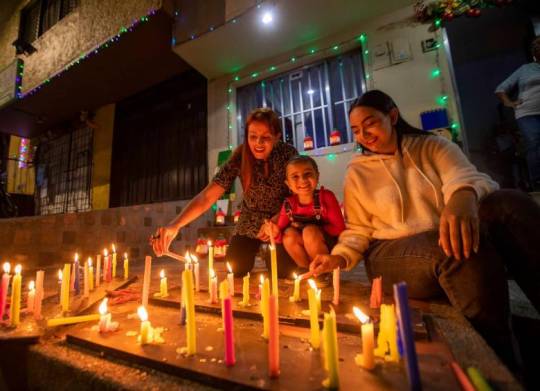
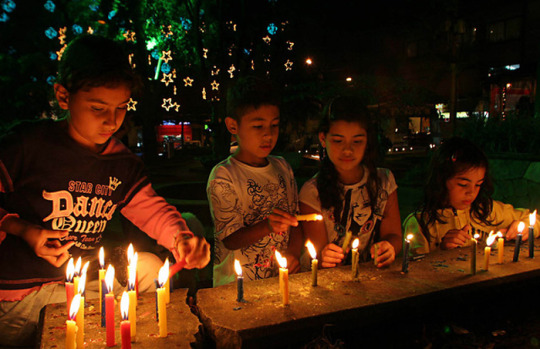
I don't think I need to explain this one. Even most goyim will know about Hannukah. But it is the weirdest thing when the dates coincide and we are all lighting candles together.
My dad was in the Jewish community board and we needed to rent a place to put our jewish daycare. They found this beautiful old house that had belonged to a family in colonial times but needed a little TLC. We had them remove some wooden floors because they were too old and rotting and found a huge Magen David made out stones in the center of the floor. The house also happened to have two separate kitchens and a mikveh or immersion bath in one of the rooms. These a very traditional things that colonial houses have in my region.
My grandmother converted to Judaism so I have a side from my family that is 100% from here and didn't arrive during the 20th century. I had the pleasure to meet both of my great grandparents from that side though they died when I was young. My grandma tells me that my greatgrandmother used to have one of these immersion baths in her house when she was growing up. Women were supposed to bathe in them after their periods had ended, my catholic great grandmother respected the mikveh traddition more than I ever have.
(I wish I had photos from that specific house but this happened over ten years ago, I'll show you some immersion baths from a different colonial houses that are also in my city)
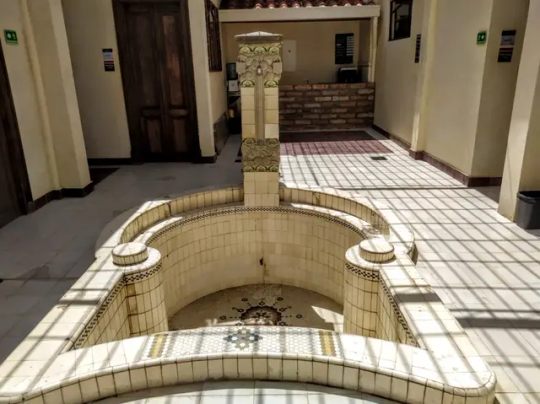
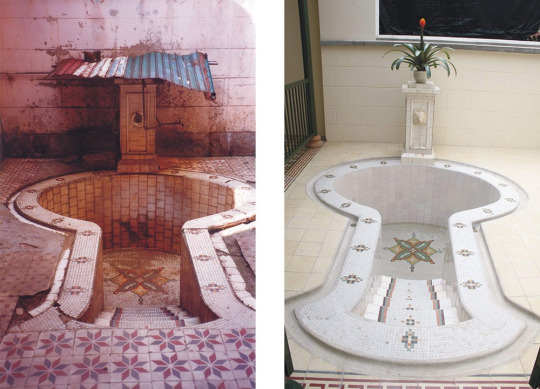
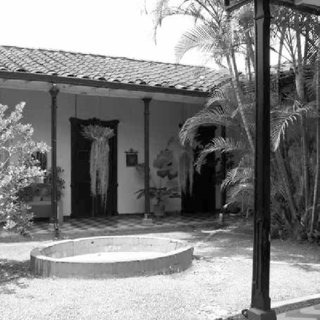
Now how about we talk about traditional clothes. I'm sure most of you have heard of Ponchos, which are traditional in the Andean region, well the one from Antioquia is a little different and it's always supposed to be worn with a hat. Let's see if you can spot what I mean.
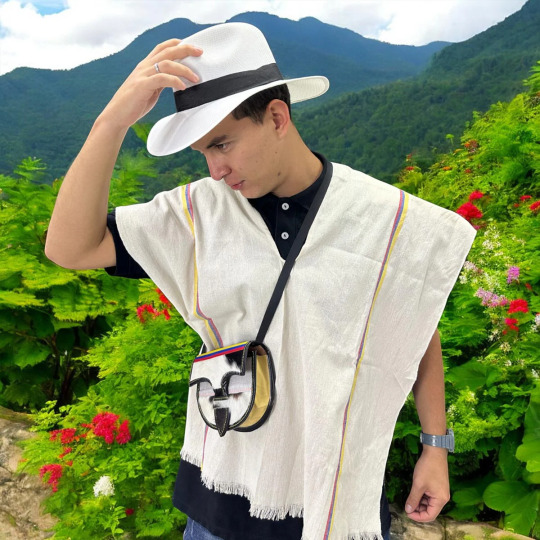
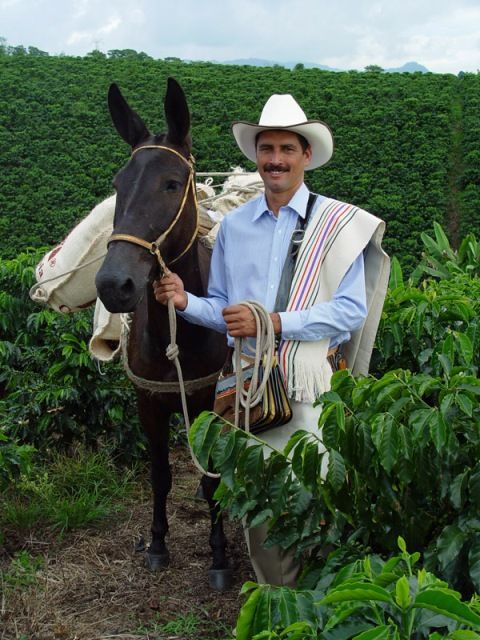
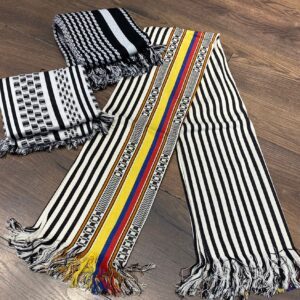
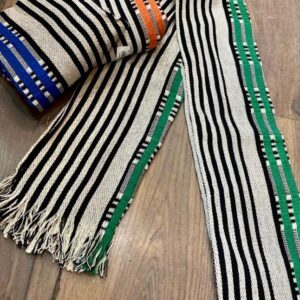
A few years ago Spain decided to grant citizenship to the descendants of the Jewish people that they had exiled in 1492. To get it you had to prove through family trees that your family had been Jewish. My city got the most ammount of passports out of everyone in the world, more than Israel. I could have applied from both my family that came from Egypt in the 20th century (we still have the keys to our house in Spain) or through my catholic side, as both of my grandmother's last names applied. I didn't but I could have.
I don't really know why I decided to finally write this post. I have so many more stories. I just think it's both incredibly sad that so much Jewish culture and people were lost but also it's a little heartwarming to see what survived even centuries down the line.
#it took me years to decide to finally write this because i didn't want to put where i live out on the internet#but fuck it#i still don't know how i feel about this#it's a bit of mourning what could've been and a bit of look a this isn't it neat#there is so much more to say about this topic but the post is too long#like how a lot of jews changed their last name to “Rojas” which spelled backwards means “lizcor” or to remember and they still forgot#or how there is a movement of reclaiming the jewish roots we have three re-emerging jewish communities in our city#one of which already converted fully and they are WAY more obvservant than my regular traditional community#crypto jews#conversos#jumblr#jewish#jews#judaism#jewish history#colombia#medellin#lationamerica#latin america#south america
778 notes
·
View notes
Text
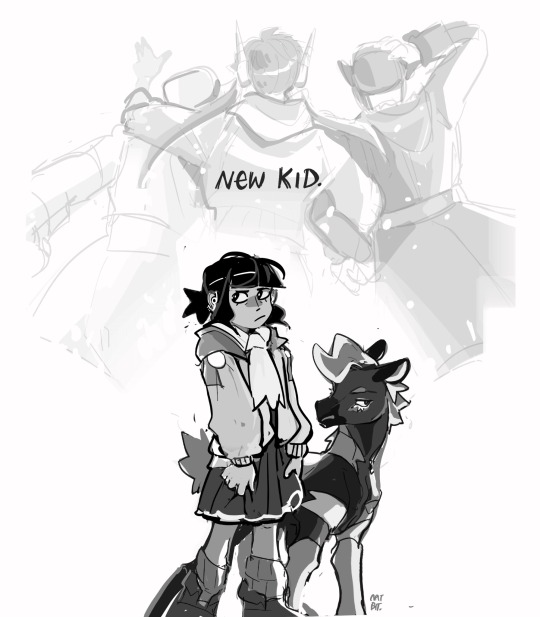
Introducing! ELESA, the new kid on the block! She's a tiny bedraggled child from Sinnoh and not all that familiar with Galarian, the spoken language in Unova. (One day she'll be amazing. Right now though, she just wants to go play in the mud. And maybe get a better set of hearing aids.)
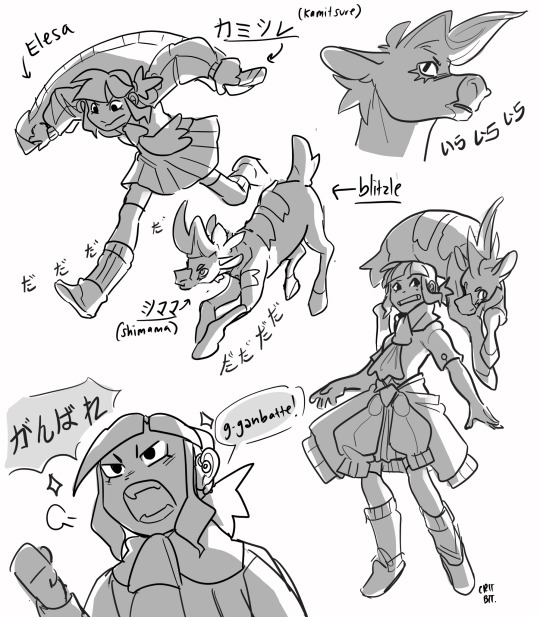
When not bitterly lonely, she’s scheming to run back to her old home. Or chasing the local patrat. Or watching nervously from the sidelines as other children play on the swings. Oh elesa. (loosely inspired by @/noxstrages' incredible comics about elesa's origins! Ty for the food.)
Masterpost to my submas comics!
#art#pokemon#sketchbook#submas#myart#fanart#gym leader elesa#blitzle#nimbasa trio#elesa#character design#baby elesa is a nightmare to work with but im happy with this draft!#her clothes are supposed to be more sinnoh fashioned#and with time she slowly integrates more and more unovan clothing inspiration into her work#one day she's going to realize everything she works on is entirely unovan. and it's gonna hurt.#(i feel like part of her modeling and costume designing stuff in the future would be her trying to reclaim some of that history)#((but also the inherent tragedy of forgetting kantonese because she tries so hard to integrate into unova makes me feel things))#(((only projecting on elesa a bit. i promise)))
3K notes
·
View notes
Text
Transandrophobes and exorsexists, on the cusp of just blatantly declaring they believe in "female privilege"-- COUGH-- sorry, I meant "AFAB privilege": Masculinity is not societally punished! So if you become masculine, you will be celebrated!
Butches, from the dawn of gender norms:

#butch even used to a fucking slur before the queer community reclaimed it#for fucks sake come on now.#lgbtq+ COMMUNITY#queer history#androqueerphobia#transandrophobia#intersectional feminism#lgbtq+ history#butchphobia#queer discourse#discourse#afab privilege is not real
127 notes
·
View notes
Text

Generational Trauma Left Unaddressed or Normalized: A Garveyite Perspective
Generational trauma is a persistent wound carried by the African diaspora—a trauma that has been left unaddressed, normalized, and passed down through centuries. From the scars of slavery and colonialism to the systemic oppression we see today, these traumas continue to shape Black communities worldwide. But what happens when trauma is not only ignored but becomes a part of our daily lives?
From a Garveyite perspective, the answer lies in self-determination, Pan-African unity, and economic empowerment. Marcus Garvey’s philosophy provides both a critique of generational trauma and a solution for breaking the cycle.
1. The Origins of Generational Trauma
Slavery and Colonialism: The Foundation of Oppression
The African diaspora was built on the forced removal of Africans from their homeland, the erasure of their culture, and centuries of systemic dehumanization. These experiences left deep psychological, social, and economic scars:
Displacement & Identity Loss: Stripping African people of their languages, traditions, and names created a generational disconnect from their true heritage.
Psychological Degradation: Centuries of forced subjugation led to internalized inferiority complexes.
Economic Enslavement: The denial of wealth-building opportunities reinforced cycles of poverty and economic dependence.
How Trauma is Passed Down
Generational trauma doesn’t just disappear—it is inherited. It manifests in:
Fear and Survivalism: Parents unknowingly pass down the survival strategies developed during oppression.
Cultural Disconnection: A lack of knowledge about African history and heritage leads to internalized self-hatred.
Economic Hardship: Systemic barriers (e.g., redlining, mass incarceration, education inequities) reinforce generational struggles.
2. The Normalization of Trauma in Black Communities
When oppression becomes routine, trauma is no longer recognized—it is accepted. Garveyism challenges this normalization, calling for Black people to wake up and reclaim their dignity.
Signs of Normalized Trauma
Colourism & Self-Hatred: The colonial obsession with whiteness led to generations of Black people being conditioned to prefer European beauty standards.
Community Distrust: Systemic oppression created deep divisions within Black communities, fostering competition instead of unity.
Economic Dependency: Many Black communities have been taught to depend on external institutions instead of building self-sufficient economies.
How Institutions Maintain the Cycle
Education: Schools reinforce Eurocentric histories while minimizing African achievements.
Religion: Christianity and other religious institutions have often been used to pacify rather than empower.
Legal Systems: Mass incarceration and policing disproportionately target Black communities, reinforcing trauma.
3. The Garveyite Solution: Reversing Generational Trauma
Marcus Garvey believed that mental liberation precedes physical liberation. Breaking the cycle requires:
1. Mental Reprogramming: Rejecting Internalized Oppression
Reclaiming African Identity: Teaching real Black history and embracing African traditions.
Celebrating Black Excellence: Uplifting achievements that counter colonial narratives.
Healing from Colonial Trauma: Rebuilding self-worth and rejecting inferiority conditioning.
2. Economic Self-Sufficiency: Building Wealth & Power
Garvey’s Universal Negro Improvement Association (UNIA) championed economic independence through:
Business Ownership: Black entrepreneurship as a means of liberation.
Cooperative Economics: Community-driven wealth circulation.
Land Ownership: Agricultural and industrial development for sustainability.
3. Pan-African Unity: Strength Through Global Connection
Garveyism teaches that Black people worldwide must unite to reclaim power. This means:
Cultural Reconnection: Restoring the bond between Africa and its diaspora.
Global Economic Networks: Strengthening Black-owned businesses and trade.
Ending Internal Division: Unifying around a shared vision of liberation.
Final Thoughts: Breaking the Cycle is Our Responsibility
Generational trauma is not just history—it is an ongoing reality. But trauma does not define us. Garveyism teaches that we are the masters of our destiny. The path to liberation requires rejecting the psychological chains of oppression, rebuilding economic independence, and uniting as a global force.
If we fail to address generational trauma, we allow it to continue. But if we reclaim our power, we break the cycle for future generations.
Rise up. Reclaim. Rebuild.
#generational trauma#Marcus Garvey#garveyism#Black Liberation#Mental Liberation#economic freedom#End Systemic Oppression#Healing Our Communities#self reliance#blog#black history#black people#blacktumblr#black tumblr#black#pan africanism#black conscious#africa#black power#black empowering#Reclaiming Our History#break the cycle#Black Excellence#Cultural Identity#Black Consciousness#african diaspora#self determination
83 notes
·
View notes
Text
Rise! Mikey and 2012! Raph would be best friends because the moment Rise! Mikey spotted this cutie sitting on 2012! Raph’s shoulder:
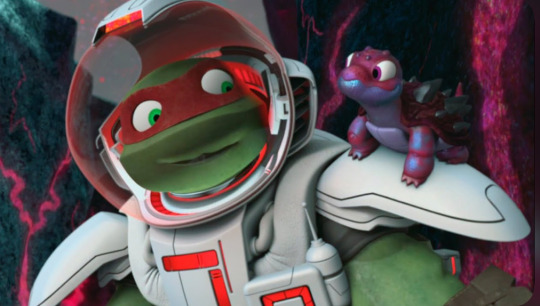
He’d be instantly obsessed with his fellow fire turtle
And 2012! Raph would never miss the chance to show off his son.
#I’d imagine the scene would be like#rise! Mikey walks into the room#spots 2012 raph and ALMOST walks past him but something catches his eye#he does a double take because there is a cute red turtle curled up on Raph’s shoulder#now until this moment 2012 Raph has been his usual stiff self so him being all cutesy with a baby turtle is a bit startling to Mikey#but he instantly snatched up chompy and is like ‘YOU HAVE A BABY TURTLE?!?’ and chompy in his excitement of meeting a new Mikey#accidentally lets out a flame-belch that fries Mikey’s face. Raph instantly scrabbles to reclaim his son and is apologizing and Mikey#is just like ‘YOU HAVE A FIRE TURTLE! I’M A FIRE TURTLE’ and instantly pulls at his mystic powers and fire just engulfs the pair#and when Mikey asks for the little turtle’s name Raph stutters out ‘chompy Picasso’#and with that info Mikey just sniffs out that Raph is an artist like him and the rest is history#tmnt#2012 raph#rise mikey#rottmnt#tmnt 2012#rise of the teenage mutant ninja turtles#rise of the tmnt#tmnt crossover#tmnt raph 2012#rottmnt mikey#tmnt michelangelo#tmnt raphael#tmnt rise#chompy
233 notes
·
View notes
Text
Fags 4 Dykes
[Pt: Fags 4 Dykes end pt]


Dykes 4 Fags
[Pt: Dykes 4 Fags end pt]


Terms for Fags 4 Dykes (or vice versa). This may mean different things for different users of the term. A few examples are: fags/dykes who are passionately allies for dykes/fags, fags/dykes who only date dykes/fags, fags/dykes who want to show their love and appreciation for dykes/fags, etc.
[Pt: Terms for Fags 4 Dykes (or vice versa). This may mean different things for different users of the term. A few examples are: fags/dykes who are passionately allies for dykes/fags, fags/dykes who only date dykes/fags, fags/dykes who want to show their love and appreciation for dykes/fags, etc. End pt]
For Day 2 of My Coining Event
2- a term inspired by Queer history (up for interpretation)
Symbolism and History:
Inspiration for term: taken from these styles of old signs
Pink triangle: history of the triangle and its reclamation as a Queer symbol (recommended read if you don't yet know!) /// used in my flag to symbolize LGBTQ+ members.
Indigo triangle: Indigo is used as an homage to Gilbert Baker's pride flag, where he used indigo to represent harmony /// used in my flag to represent harmony between these identities and people
Anyone may use my terms! My terms are free to be posted anywhere (wikis, personal term collections, etc.) with or without credit!
@k2god @making-gender @yellow-computer-mouse @radiomogai @obscurian @liom-archive @x4xarchive
#f slur reclaimed#f slur#f slur cw#d slur cw#d slur reclaimed#d slur#dyke 4 fag#fag 4 dyke#dyke flag#fag flag#queer history#cqcevent#cqcmonth#chronicallyqueermonth#chronicallyqueercoining#coining event#queer identity#chronic queer#queer label#mogai coining#queer flag#mogai safe#my flags#pro mogai#liom coining#identity flag#identity coining#identity label#x4x coining#x4x flag
57 notes
·
View notes
Text

#t slur reclaimed#bi history#bi pride#bisexuality#trans pride#bisexual#trans bisexual alliance#b with the t#bisexual pride#trans history#bisexual history#queer history
73 notes
·
View notes
Text
Part one of a continuing investigation into the unconscious mind that reveals a bias that causes more harm than good.
First a question: Who is responsible for filing the void (s) that are hidden deep within us and in the depths of our minds & hearts ?
In my world, I take full responsibility for what is missing in my life or what I perceive to be absent. In other words, when there is a void, I choose to fill it and sit with it. At times I choose to let it be. At all times I am choosing because there is power in choice.
A side note: responsibility is the state of being accountable or to blame for something.
I’ll also add that I don’t resonate with the word “blame” because blame insinuates that you’ve done something wrong, but accountability is the act or condition of being accountable; responsible.
When I think about the unseen, I feel. That’s it. It is a feeling of discomfort because it extends beyond human comprehension of what is and what is not acceptable, in this context, emotions and how we express them.
Imagine walking into a dark room or landing in a dark space. There are no lights, therefore, you can’t see any doors. There aren’t any windows. The only air is your breath and you are fine with it because you aren’t conscious that air exists outside of that breath, and in this space it’s the least of your worries. There aren’t floors but you are walking, moving in the dark. Nothing is visibly there but you feel everything everywhere all at once. You only see darkness, but the room feels full. You know that there are things there but you can’t see it. You want to sit in a chair but you can’t see a chair. You want to have a conversation but you’re the only one in the space. You want to speak and you can but you choose to feel.
What are you feeling ?
Fear. Sadness. Anger. Rage. Limitations. Frustrations. Jealousy. Joy. Love. Ease. Pain. Happiness. Pleasure. Resentment. Curiosity. Openness. Confusion. Expansion. Conflict. Excitement. Intoxication. Competition. Ownership. Suppression. Oppression. Safety. Danger. Peace. Exposure.
What do you see ?
Darkness. Light. Memories. Injustice. Nothing. Everything.
What do you hear?
Silence. Voices. Laughter. Crying. Yelling.
I’m sure there’s more to see and hear but you’re in a dark room and you chose to feel. Therefore, more feelings arise. You are in a space where you’re able to look at them, embody them fully with no judgment.
How do you choose to react and in that reaction what thoughts are present ? If you were in a place filled with light and others were present how would you act or react ? What are the differences of being in that place with a community versus being alone, and why do those differences exist ? Are you aware of them? Conscious enough ?
To be continued…,maybe ?
1 note
·
View note
Text
Queer witches have always been here

We all know the gays love tarot and astrology, but did you know that the connection between witchcraft and queer sexuality goes back to ancient times?
Throughout history, cultures all around the world have believed that queer people have special spiritual or magical abilities. While "queer" and related labels like "gay," "lesbian," and "transgender" are modern terms, all cultures have people who exist outside of mainstream gender and sexuality norms. These people with non-normative identities are sometimes believed to have a special connection to the world of spirits.
(I am using the word "queer" as a convenient umbrella term for all of these complex identities, but I do recognize that this isn't historically accurate.)
In some cases, such as some parts of Europe, these queer people were explicitly called witches or magicians. "Deviant" sexual behavior was often part of accusations during the English witch trials, for example.
In other cultures, queer identity is connected to other special spiritual roles. Some examples include:
Ancient Mesopotamian sal-zikrum (literally “women-men,” priests of Inanna)
Ancient Roman galli (male priests of the goddess Cybele who were castrated as part of their initiation)
Old Norse vitkar, men who practiced a feminine magical art called seiðr and were sometimes accused of having sex with other men
It's interesting to note that many cultures assign a special spiritual role to people who fall outside the categories of "man" and "woman" -- people we might identify today as nonbinary or genderfluid. In other cultures, magic was associated with homosexuality or bisexuality.
And then, of course, we get into modern occult movements with figures like Aleister Crowley who, as hateful as he may have been in some ways (and he was), was also unabashedly queer in his practice and his writings. If you follow any magical path influenced by Crowley's writings, including Wicca and Wicca-inspired witchcraft, you are borrowing from the work of a queer sorcerer.
Several of the most notable witchy and pagan authors of the 20th century were/are also queer. Scott Cunningham, who pioneered ecclectic Wicca as we know it today, was a gay man. Starhawk, who wrote The Spiral Dance and founded Reclaiming, is bisexual. Stewart and Janet Farrar, who published some of the first widely available books about traditional Wicca, were in a polyamorous triad with Gavin Bone. (Stewart has passed away, but Janet and Gavin are still together.) If you read any popular book on witchcraft or occultism published in the last 50 years, it probably cites at least one queer author.
Witchcraft has always been queer. We have always been here, and we're not going anywhere any time soon.
#citing these authors as examples does not mean i agree with them or recommend their work#but i have to respect the queer witches who paved the way#queer witch#queer witchcraft#queer magic#queer history#queer spirituality#queer#lgbtqia#lgbtq+#lgbt#witch#witchcraft#witchblr#witch resource#pagan#paganism#pagan witch#paganblr#inclusive heathenry#reclaiming witchcraft#wicca#history#occultism#occult#magic#magick#long post#my writing#mine
138 notes
·
View notes
Text
for anyone who has ever seen someone claim pansexual was coined on social media by teenagers in the early 2000s, the 2010s, and even in the past few years, and believed it or wondered if it’s true, or known it’s not true and been annoyed by the misinformation, this article is for you!
after listing out all of the claims i’ve seen, i succinctly debunk them by laying out a brief overview of pansexual’s history dating back to the 1960s, both as a term generally indicating universal appeal/inclusion and a term indicating sexual freedom/attraction to all genders. i include a look at pansexual’s use specifically within queer spaces, with a focus on bisexual spaces, as well.
i also touch briefly on omnisexual and polysexual existing in similar contexts to pansexual dating back to the 1960s. and finally, i discuss a little bit about how when, where, and by whom a label is created doesn’t determine the validity or usefulness of it, because these claims come with the implication that new labels, labels created by kids, and labels originating on social media aren’t legit forms of queer expression and identification.
happy pan week! 🥰💗💛💙
#pansexual#pansexuality#pan pride#pan positivity#pan week#medium#text#mine#and as always please remember that queer people have always played with language#and tweaked it until it worked for us and utilized what we felt seen by#and filled in the gaps with our own creations where we didn’t feel understood and left the rest#queer people expressing themselves in a way that feels authentic to them is always a good thing#truly don’t understand why the when where and by whom a label was created would matter more than someone feeling seen by a label#because while we’re talking about new labels made by kids online with regard to pansexual#so much of queer language has been reclaimed or repurposed from completely different (and often bigoted) origins#and people barely even acknowledge it. but suddenly the origin is crucial when it’s a label folks have a vendetta against#and listen. learning history is fun and important but we aren’t beholden to it.#we can have new meanings and uses and completely new words!!! it’s fine!!!! it’s not that serious!!!#maybe one day pansexual will fall completely out of use and people will find a different word to express it or something similar#and that’d be fine. and maybe one day after that someone will come across an old post about pansexuality and decide it speaks to them#and it will all happen again. and that will be fine. language is like that. self-identification is like that.#y’all take all of the fun and joy and excitement out of finding or creating language that perfectly captures how we feel#and then finding a community of people who feel the same way we do#y'all focus so much on the parts that don't matter. find your language find your people that's what matters#not finding something to use against someone else who feels seen by a word you don't feel seen by#anyways. pansexual isn't new. stop spreading lies because you care too much about things that don't matter
102 notes
·
View notes
Text

Mad your DNA said West African? That’s not disappointment—it’s internalized colonial shame. Some of y’all would rather claim Moor, Olmec, Hebrew, or Viking before you accept Africa. That’s not consciousness. That’s confusion and self hate.
You were stripped of your language, land, and lineage—and now you cosplay lost empires to feel valuable. But the truth is: you are African. And there’s no higher truth than that.
Your heritage is the root of civilization itself. African ancestors built pyramids without machines, mapped stars before telescopes, birthed medicine, mathematics, and systems of governance. Even in the face of slavery and colonization, they resisted, revolted, and rebuilt. That blood runs through you. That fire is yours.
Having African heritage isn’t a downgrade—it’s a divine inheritance. It's not something to deny, it’s something to defend. You’re not lost. You’re rooted. Stop fleeing your power. Stand in it.
✊🏿
#black history#black people#blacktumblr#black tumblr#black#black conscious#Garveyite Satire#identity confusion#Diaspora Disconnection#Colonial Mentality#African Ancestry Affirmation#Black Self-Hate Satire#We Wuz Everything But African#Denial of African Heritage#Psychological Colonization#Truth Over Fantasy#Reclaim African Pride#african diaspora#black diaspora#black community
67 notes
·
View notes